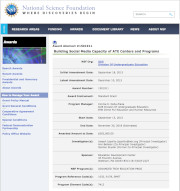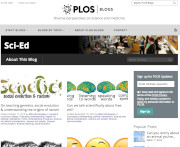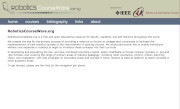
Building Social Media Capacity of ATE Centers and Programs
atecentral.net/r31130
The significant use of social media has transformed the lives of students. The project investigates the effectiveness of social media strategies in the construction of messages and platforms using best practices from business and research in service of the recruitment of students into advanced technological fields in science, technology, engineering, and mathematics (STEM). The project draws on established partnerships and the results from prior NSF-funded projects. Specifically, the project builds on a robust partnership between the Education Development Center (EDC) and National Convergence Technology Center (CTC) to develop and test a model and materials that will enable a selected set of ATE centers and projects to construct and implement social media strategies based on best practices.
The analytic and qualitative study addresses the need for ATE centers and projects to use to the full potential of social media, associated technologies, and strategies to recruit students into advanced technological fields in STEM fields. A set of well-defined and vetted social media strategies provide the backbone of this effort. A pre/post research design tests the effectiveness of messages and the different social media platforms using a set of data analytics and tools that measure traffic, use, time spent, and audience engagement.







